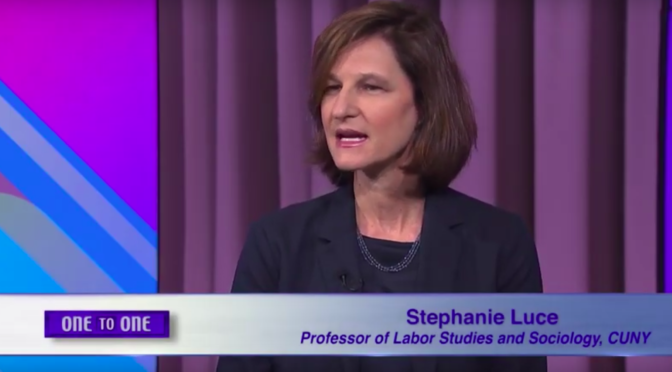Unions
-

Prof. Stephanie Luce Featured on CUNY TV
In June, Professor Stephanie Luce, Chair of SLU’s Department of Labor Studies, spoke with veteran New York Newsday columnist Sheryl McCarthy on the CUNY TV series “One to One.” The conversation centered on the annual “State of the Unions” report published by Luce and Professor Ruth Milkman, as well as larger trends affecting labor unions.
-

New Labor Forum: April 1st, 2019
The New Labor Forum has a bi-weekly newsletter on current topics in labor, curated by the some of the most insightful scholars and activists in the labor world today. Check out some highlights from the latest edition below. The early successes of the #MeToo movement caught many commentators by surprise. However, despite its notable achievements – including dramatic increases…
-

Labor Notes Shares Vision for Organizing in Post-Janus America
Since the Supreme Court’s 5-4 ruling in Janus v. AFSCME declared required agency fees for public sector unions unconstitutional, many in the labor world and media are scrambling to ask the question: Can labor unions bounce back after Janus? According to Labor Notes, the answer is yes — but it will require thought and a plan. The…



